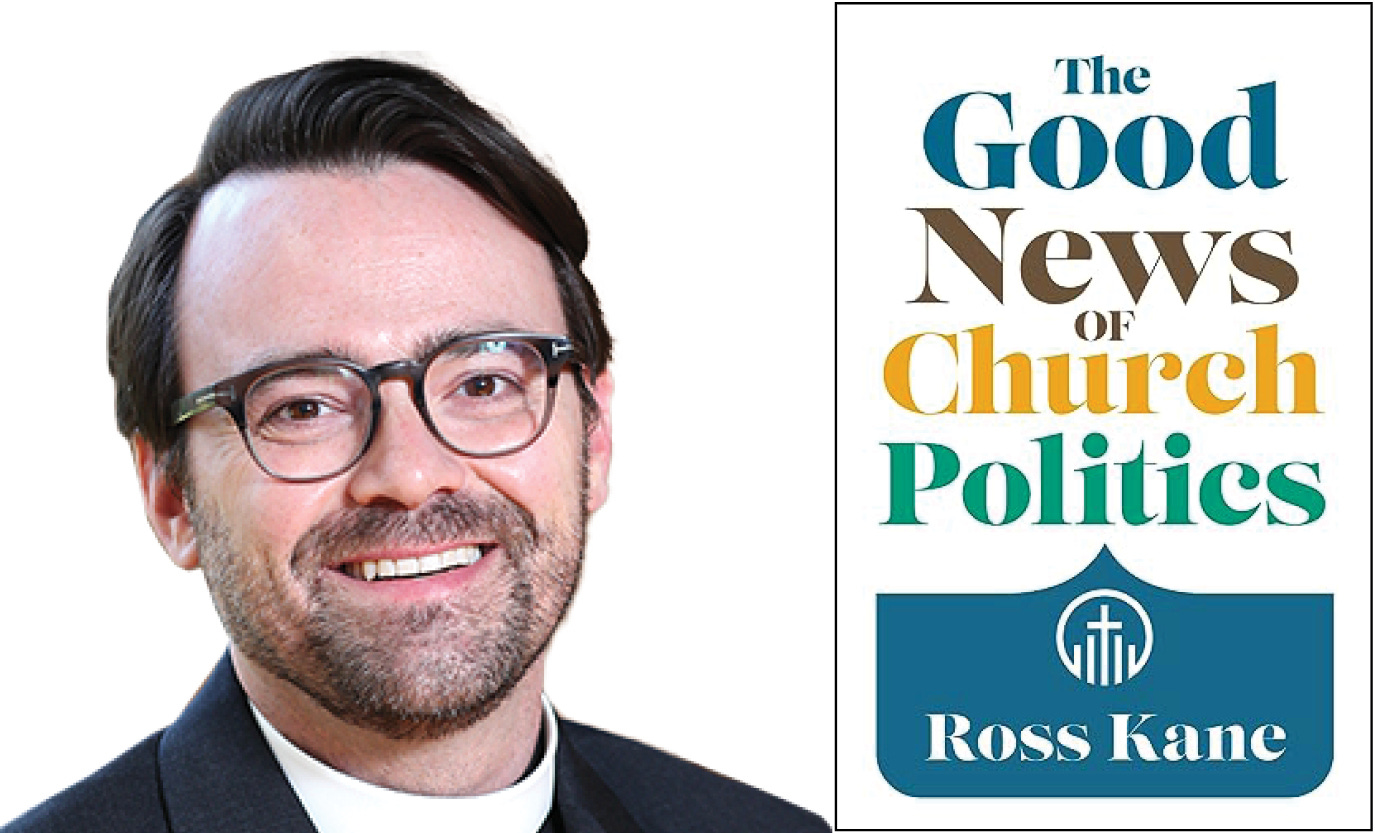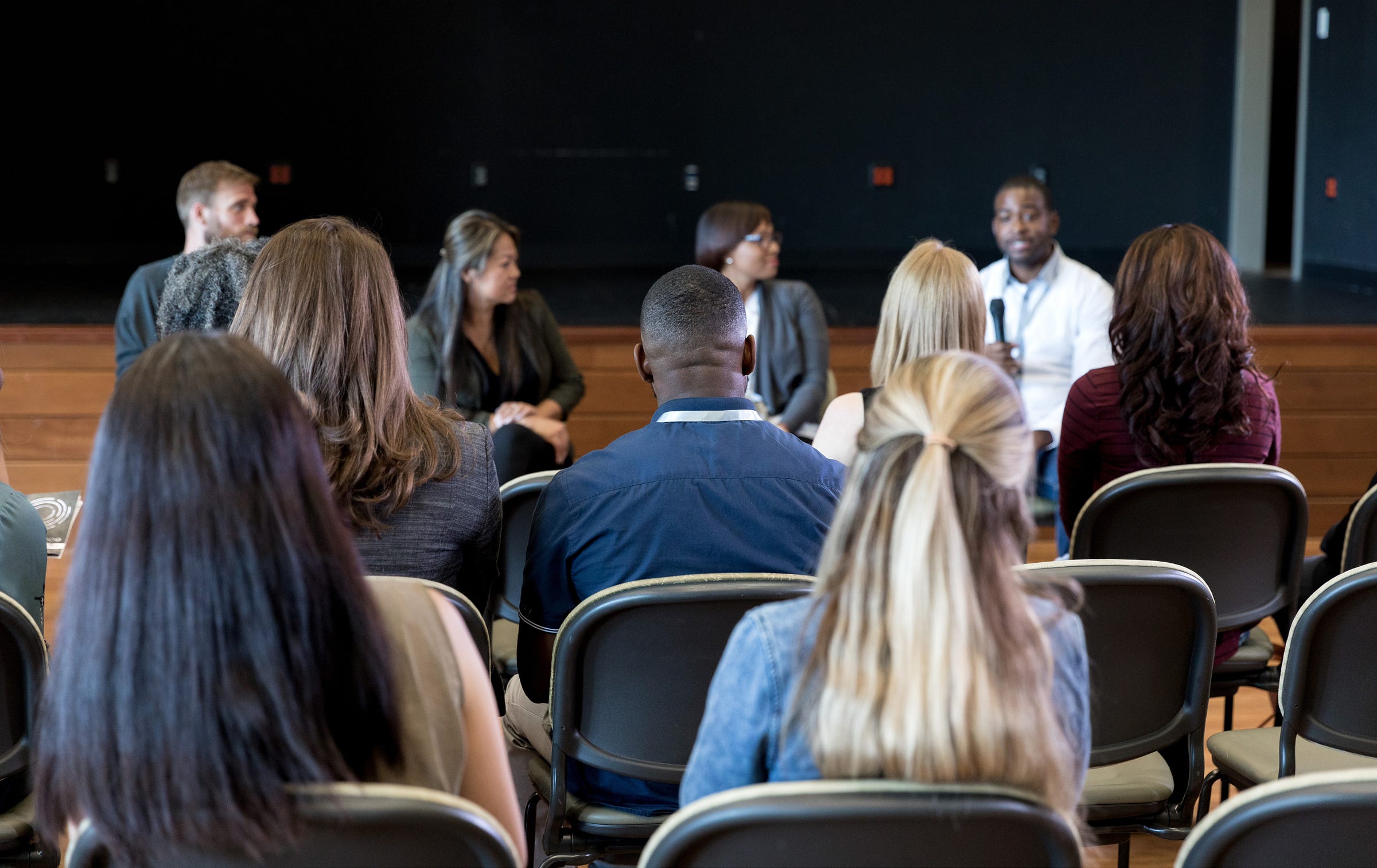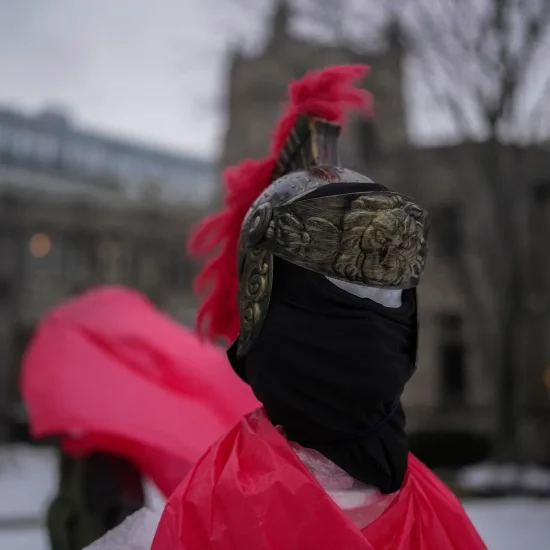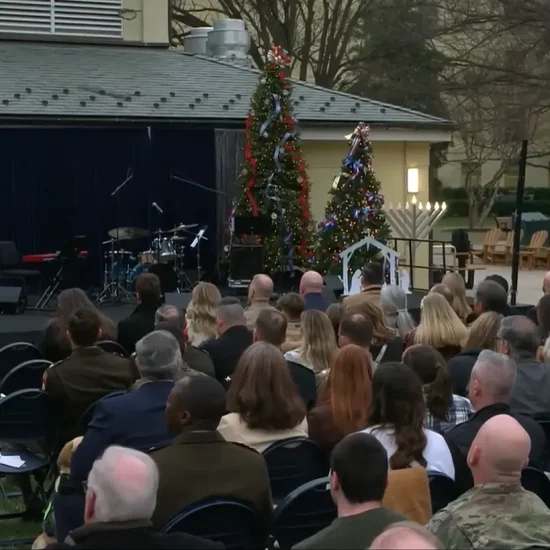
The maxim “all politics is local” conveys an important truth: what resonates most deeply in our public life is the impact a policy or issue has on our neighborhoods and communities. This is why politicians visit diners despite privately eating at steak houses, constantly reference “main street” even though they spend more time on K Street, and emphasize the specific ways that large-scale legislation will make a difference in the areas they represent.
In The Good News of Church Politics, theologian and pastor Ross Kane articulates a vision of how Christians can engage in public life that begins with the same premise that all politics is local.
“The congregation is at the heart of Christian political life. Congregations can be communities of love and justice — both internally and in relation to our neighbors” he wrote. “They spread the good news of a God who loves God’s creatures and brings justice to the downtrodden.”

Local churches foster communities of loving interdependence, where each person offers what they can and receives what they need. They make visible how none of us are islands unto ourselves, but instead depend on others in order to survive and flourish.
And what is true within the local congregation also defines the relationship of churches to the neighborhoods around them. In fostering relationships with those in local proximity, Christians come to understand the needs and concerns of their neighbors. Such encounters inspire churches into political action. Advocacy for better housing or the launching of a feeding ministry starts with paying attention to what’s happening nearby.
“As a church loves its neighbors, it should find itself engaged in local church politics in ways that change both the neighborhood and the church,” Kane explained. “Following Jesus also means that a congregation sees neighbors who suffer. In doing so, it will find injustices within its community. Facing such injustices will then involve the church in matters of local town or city politics.”
Don’t be fooled, though. Kane doesn’t see Christian politics ending there. In the same way that an awareness of our neighbor’s needs drives local engagement, our understanding of how broader social and structural forces impact what happens in local communities pushes Christians to reflect on how they vote in federal elections or advocate in a state legislature. But it’s the experience in our local communities and the principles that define how we relate to each other in church that shape the form this wider witness takes.
In addition to encouraging Christians to think about politics from a different starting point, Kane does something else tremendously valuable in the book. He creatively unpacks familiar Christian practices and scriptures in politically relevant and provocative ways.
For example, our culture has come to see “thoughts and prayers” as an excuse for inaction when it comes to dealing with significant policy issues. Many of us cringe at the phrase whenever a mass shooting happens and our leaders act like they’re powerless to reduce the prevalence of gun violence in our society. Yet, Kane suggests there’s more of a link between prayer and politics than we might realize.
“Prayer and political action both push us to recognize our interdependence,” he wrote. “When contemplation and political action come together, we discover spiritual wholeness amid fragmentation and hope amid disappointment. We see how thoroughly our lives are interconnected with God and one another. We find ourselves part of something much greater than ourselves, which is the work of the Holy Spirit in the world to heal and repair it.”

Get cutting-edge analysis and commentary like this in your inbox every week by subscribing today!
Readers will find the connections he makes to other topics — like forgiveness and loving our enemies — to also be edifying. There are a lot of Christian books about politics that simply update old assumptions for a new moment. The Good News of Church Politics offers new ways of seeing our public life — or, perhaps, ways we’ve forgotten about.
In an election season where so many Christians, pastors, and churches are struggling with how to talk about religion and politics, Kane’s book is a breath of fresh air. It promises to be relevant in the lead up to Nov. 5 and, more importantly, long after. It is a resource that offers not only “safe” territory for charged conversations, but one that rightly refocuses our attention on what’s really at stake in those discussions: how faithful we are as disciples. That’s because he isn’t seeking to sacralize a partisan agenda. Instead, he wants to recover the power of the local church — and its members — to participate in the reign of God.
“Our politics of loving interdependence participates in bringing heaven to earth,” he stated at the book’s end. “It may be as simple as a joyful church coffee hour after communion when we experience a taste of beloved community. It may be as significant as the dismantling of apartheid. But they are all foretastes of the heavenly city, all forms of Christian politics.”
You can listen to Kane talk in more detail about his book in this recent episode of Dangerous Dogma, where Brian Kaylor hosts some amazing conversations with leaders and thinkers working at the intersection of faith, politics, and culture.
Kane has agreed to send an autographed copy of The Good News of Church Politics to one lucky subscriber to A Public Witness. So upgrade today and you might find a signed copy headed your way. In the meantime, root yourself in a Christian community of loving interdependence. And pay attention to all the politics happening in that place. You’ll start seeing a lot of good news.
As a public witness,
Beau Underwood






